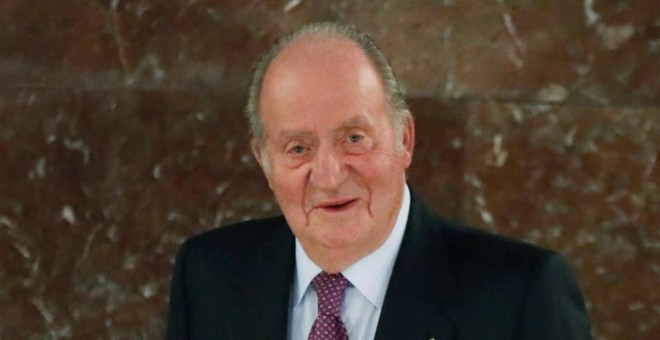FACTBOX-Spain's monarchy, beset by scandal, is funded by taxpayers
Spain's Royal House, in the spotlight this week after former king Juan Carlos decided to leave the country under a cloud of financial scandal, is a publicly-funded institution created to support the king as the head of state and his family. Spanish and Swiss prosecutors are looking into allegations of offshore accounts and bribes linked to a high-speed rail contract.

- Country:
- Spain
Spain's Royal House, in the spotlight this week after former king Juan Carlos decided to leave the country under a cloud of financial scandal, is a publicly-funded institution created to support the king as the head of state and his family.
Spanish and Swiss prosecutors are looking into allegations of offshore accounts and bribes linked to a high-speed rail contract. Juan Carlos, 82, is not formally under investigation in either country. He has declined to comment, saying the allegations concerned his private life.
Various reports have now placed the former king in Europe, the Caribbean and the Middle East. Following are details on the royal finances, drawn from the executive office of the king, its website (www.casareal.es), and the Spanish government:
- Spain's annual state budget sets funding for the House of His Majesty the King. The constitution states it should be "sufficient for the head of state to work with the independence inherent to his constitutional functions". - The budget has come down over the past decade by about 6% to around 7.9 million euros ($9.29 million).
The king decides how to distribute the money. King Felipe was paid a salary of around 248,000 euros in 2019, while Queen Letizia earned close to 137,000. Felipe's father and mother were paid around 310,000 euros in total.
King Felipe's decision in March to end his father's palace allowance, worth 198,845 euros, added to the institution's small surplus of below 1 million euros. - In 2015, Felipe decreed that the royals must not accept gifts beyond what is "habitual, social or courteous", or that could "compromise the dignity of their institutional duties".
Members of the household may not accept low-interest or interest-free loans, or gifts of money. Cash prizes bestowed on a royal must be donated to charity, and any anniversary or occasion that might lead to gift-giving is subject to specific rules. Any gift deemed institutional must be given to the state.
- The royal house spends over 3.8 million euros on personnel and 2.7 million euros on goods and services per year. Its budget also earmarks investments worth 1.3 million euros. - The Royal Family uses various palaces, including western Europe's largest in Madrid, and residences across the country that are state-owned.
- The Interior Ministry pays the cost of Juan Carlos's security, which is provided by the royal household. - Asked on Tuesday how the former king would pay his bills from now on, Prime Minister Pedro Sanchez declined to comment.
($1 = 0.8503 euros) (Compiled by Andrei Khalip and Isla Binnie; Editing by)
(This story has not been edited by Devdiscourse staff and is auto-generated from a syndicated feed.)
- READ MORE ON:
- Juan Carlos
- Europe
- Letizia
- Spain
- Spanish
- Pedro Sanchez
- Middle East
- Caribbean
- Madrid
- COVID-19
ALSO READ
Former Spanish soccer federation head Luis Rubiales set to return to Spain amid corruption probe
Spanish PM says Israeli explanation of aid workers attack is 'insufficient and unacceptable'
Soccer-Spanish league player suspended after confronting racist abuser
Spanish group working with World Central Kitchen stops using sea route to Gaza
MORNING BID EUROPE-Middle East tensions spook markets










